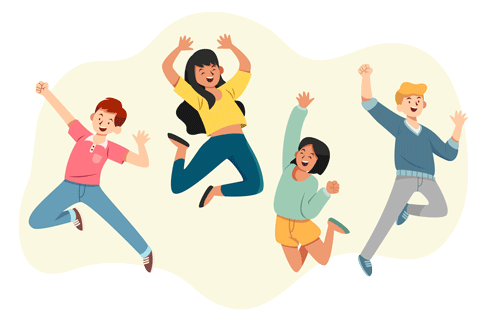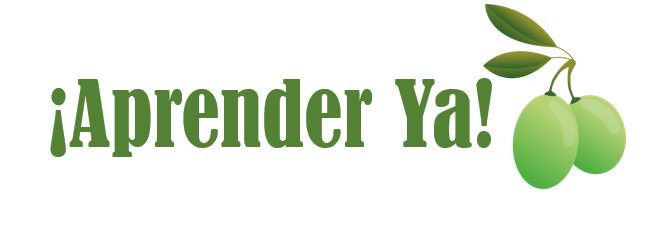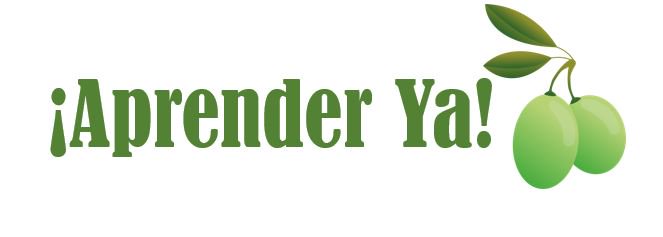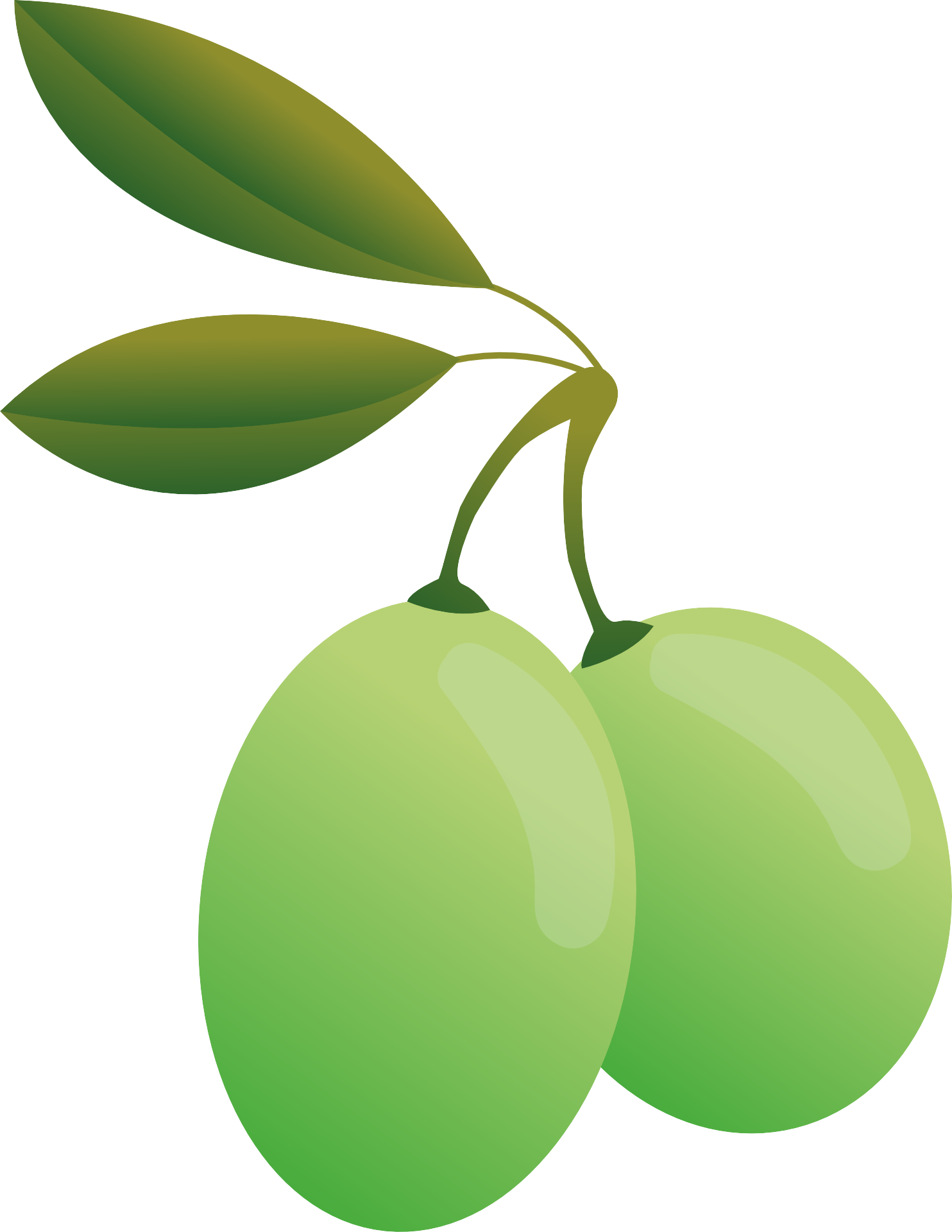Young adults: 14 - 18 years old

This course is designed for young adults in high school years who need extra lessons, or who just want to improve their spoken or written Spanish.
The lessons are designed with attractive material and activities for this age group. For example if we are learning daily activities, they would have to film a day in their lives, doing things like skating to school, having dinner, hanging out with friends, doing homework, etc. They would have to add text to the video in Spanish, and if they know any Spanish speakers or other students, do a little interview.
We are proud of our culture and we show that in our lessons, we pay special attention to cultural aspects and spanish way of life.
We can also prepare students to pass their exams. We will together with the student check the exam contents and prepare specific activities and exercises focused on achieving this purpose. We can offer extra support in English during the lessons if necessary. We will the student´s hobbies, and interests and build the lessons around that. To gain motivation, we will use the latest technology and / or social media.
This course is what I need
What I am going to learn?
I want to know more!
How many courses are there?
We offer :
– Beginners (A1)
– Elementary (A2)
For higher levels please fill in this form.
I want to take a free trial lesson!
What can I learn in each course?
Beginners courses: there are three beginners levels and conversation. Each level is 10 lessons.
Beginners 1
Subjects:
- Giving and requesting personal information, age, name, where do you live etc.
- Introduce yourself
- Spelling
- Talk about important dates and when it takes place
- Introduce others, countries, nationalities, languages etc.
- Talk about likes and dislikes
- Talk about habits
Grammar:
- Phonetic alphabet, letters, vowels, consonants and intonation.
- Nouns and adjectives gender
- Three conjugations -ar, -er and -ir in present
- Verbs ser, llamarse, tener, estar
- Personal pronouns
- Verb gustar
- Indefinite and definite articles
- Reflexive verbs
- Numbers to 30
Beginners 2
Subjects:
- Talk about animals
- Talk about people’s personality
- Describe people
- Talk about the family
- Describe a house and its rooms
- Colours
Grammar:
- Verbs: gustar and encantar
- Direct object pronouns
también and tampoco - Present tense irregulars verbs
- Hay and no hay
Verbs: ser, tener y llevar - Prepositions like delante, detrás, encima, al lado, etc.
Culture:
- Peruvian animals
Valencia - The Oceanografic in Valencia
- Colombian serie: La chica vampiro
- Joaquin Sorolla, a Valencian painter
- Spanish surnames
Beginners 3
Subjects:
- Talk about daily routines, in the morning, half day and evening.
- Talk about timetables
- Talk about after school activities and hobbies
- Talk about your city and neighbourhood
- Compare city life with life in a village
- Talk about norms in the city
Grammar:
- Daily activities
- Present tense regular, irregular and reflexive verbs
- Verbs with vowel change: vestirse, dormir and merendar
- Verbs like ver, ir, hacer y estar
- Hay vs estar
- La hora
- Muy, mucho, mucha, muchas, muchos, poco, poca, pocos y pocas
Cultural differences:
- Pontevedra
- Spanish kiosks
- El camino de Santiago
Veracruz - Flying children school
- El Fandango
- Spanish timetables
Beginners Conversation
In this course we do not offer new grammar. We practice the subjects we learned in Beginners 1 2 and 3. This course´s focus is on speaking and increasing the vocabulary.
Example of special projects: create a comic, make a film, write emails to other students, reading a book and making a presentation in class, etc
Elementary courses: there are three Elementary levels and conversation. Each level is 10 lessons.
Elementary 1
Subjects:
- Describe people’s mood and characters
- Compare Spanish education system to yours
- Propose activities, accept or decline invitations
- Talk about activities and trips in the past
- Plan touristic activities
- Talk about the weather
Grammar:
- Ser and estar + adjective
- Muy, bastante, un poco
- Future ir a + infinitive
- Verbs ir and venir
- Verbs traer y llevar
- Pretérito perfecto
- Pretérito perfecto markers hoy, esta mañana, este año, etc.
- Direct object pronouns
- Movement prepositions a, en, por, etc.
Culture:
- Zaragoza
- Spanish education system: timetable, holidays, marks, etc.
- Some historic periods in Zaragoza
- Canary Islands
- El Teide
- Los guanches: the first Canary Islands inhabitants
- Timanfaya National Park
Elementary 2
Subjects:
- Talk about experiences and adventures
- Compare your life as a child with your current life
- Talk about primary school and the game you used to play
- Talk about the changes in the media
Grammar:
- Imperfecto
- Imperfecto markers: en los años…., en aquella época…, en el siglo…., hoy en día….
- Estar + gerundio
- Por and para
- Ser review
Culture:
- Primary schools in Chile
- Traditional games
- Los mapuches: traditions and their current struggles
Elementary 3
Subjects:
- Talk about an artist life and biography
- Talk about an athlete´s childhood and teenage years
- Talk about teenagers’ personalities and talents
- Talk about what we have, and describe the steps to make something
- Talk about clothes, ways of dressing and what it expresses
- Talk about clothes and how to shop in a clothing shop
Grammar:
- Indefinido
- Indefinido markers: a los 5 años, en 1987, etc
- A + direct object
- Combination of indirect and direct objects
- Demonstrative pronouns
- Interrogative pronouns
- Querer + infinitive
- Necesitar + infinitive
Culture:
- Salvador Dalí (artist)
- Ana Castillo (actress)
- Sarai Gascón, Luis
- Suárez y Gisela Pulido (athletes)
- The Catalan modernism and
- Antonio Gaudí (architect)
- El Día de los Muertos
- Mexican crafts
Elementary Conversation
In this course we do not offer new grammar. We practice the subjects we learned in Elementary 1, 2 and 3. This course focus is on speaking and increasing the vocabulary.
Example of special projects: create a comic, make a film, write emails to other students, reading a book and making a presentation in class, et


